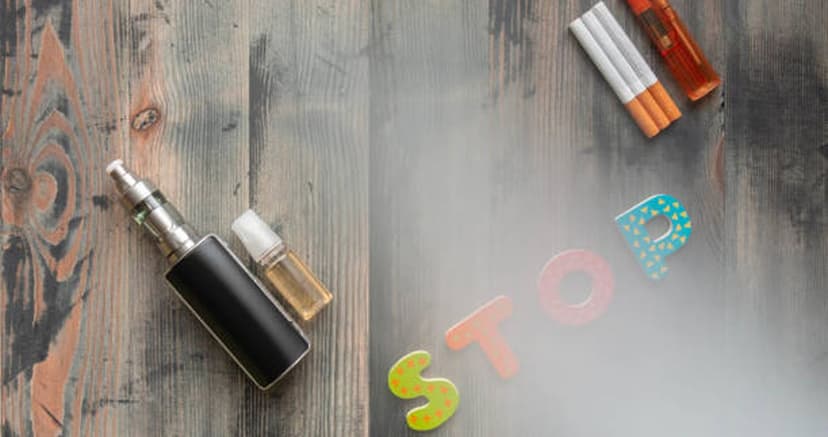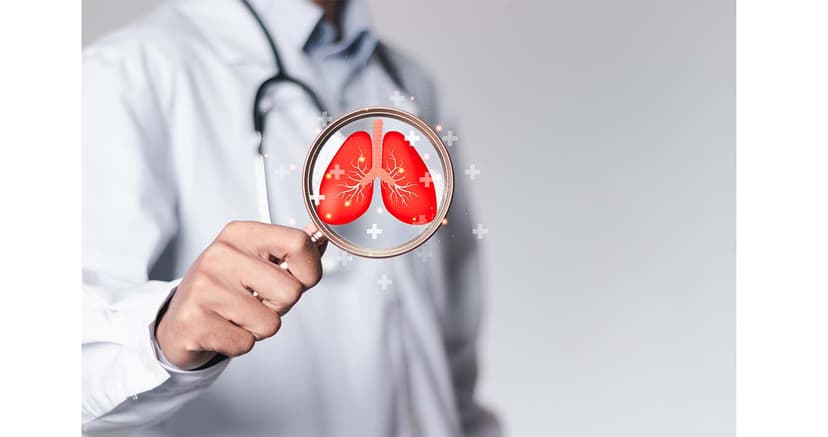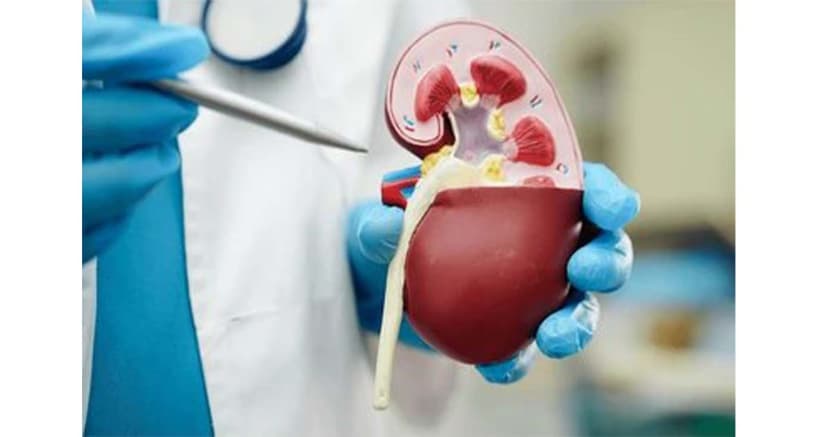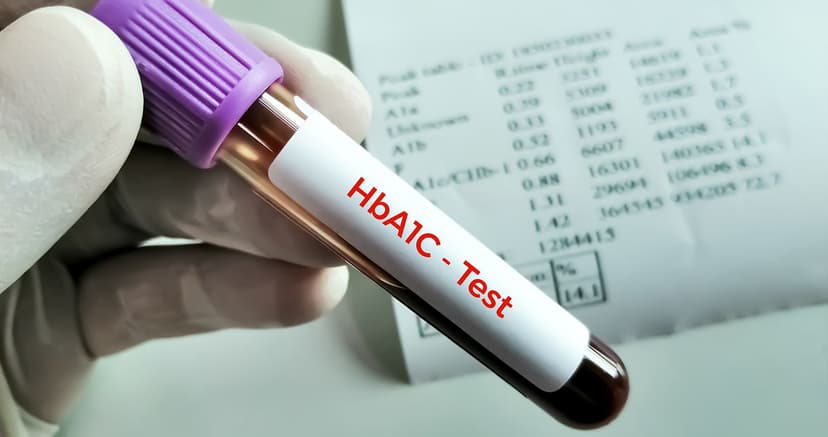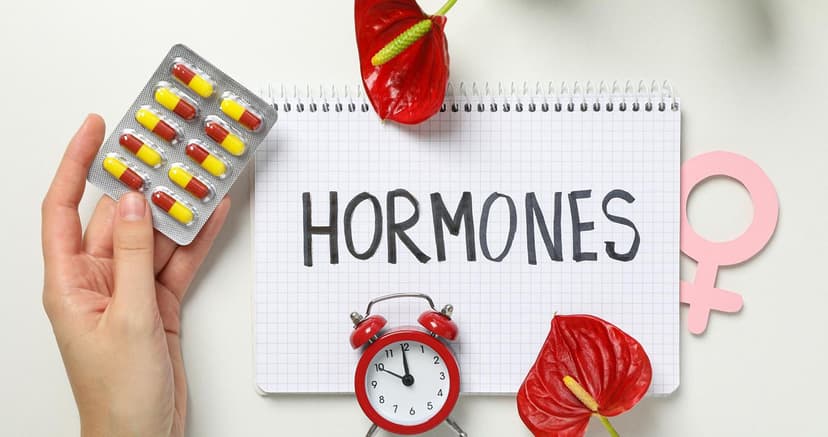Clean Hands, Healthy Lives: Global Handwashing Day 2023
By:
Apex Hospitals
15-10-2023 5 Min Read

Clean hands are within reach!
This year, as we celebrate Global Handwashing Day on October 15, it's a reminder that something as simple as washing our hands can profoundly impact our well-being and our communities' well-being. Handwashing is not just a routine chore; it is a powerful defence against illness and a cornerstone of public health. In this blog, we will explore the significance of handwashing, the essential hand hygiene steps, and how we can make a difference on this important day.
The Power of Handwashing
Handwashing is often described as the single most effective way to prevent the spreading of infections and diseases. Whether you're at home, at work, or in a healthcare setting, it is a practice that has been proven time and again to save lives. Whether it's the common cold, flu, or more severe illnesses like COVID-19, proper hand hygiene plays a pivotal role in breaking the chain of transmission, making it the first line of defence. Clean hands are a fundamental aspect of maintaining good health and preventing the spread of diseases, whether at the individual, community, or global level.
Proper handwashing helps in:
- Disease Prevention: Handwashing is one of the most effective measures for preventing the spread of diseases. Germs and bacteria that can cause illnesses like the common cold, flu, gastrointestinal infections, and more are often present on our hands. Regular handwashing with soap and water helps remove these pathogens, reducing the risk of getting sick and preventing the transmission of illnesses to others.
- Community Health: Handwashing is not just about personal health; it profoundly impacts community health. When community members practice good hand hygiene, the entire community benefits. It can break the chain of disease transmission and prevent outbreaks in schools, workplaces, and other communal settings.
- Cost-Effective Public Health Measure: Handwashing is a low-cost, high-impact intervention in public health. It doesn't require expensive equipment or resources. A small amount of soap and water is needed to make a significant difference in reducing the prevalence of diseases.
- Global Impact: On a global scale, the power of handwashing is evident in its potential to prevent pandemics and large-scale outbreaks. Access to clean water and soap and knowledge of proper handwashing are crucial for public health initiatives worldwide. Organizations and governments recognize that handwashing is a cornerstone of public health and hygiene.
- Hand Hygiene in Healthcare: In healthcare settings, the power of handwashing is amplified even further. Healthcare professionals follow strict hand hygiene protocols to protect patients and themselves. Proper handwashing in hospitals and clinics reduces the risk of healthcare-associated infections and saves lives.
- Healthy Habits Start Early: Teaching children the importance of handwashing instils a lifelong habit of good hygiene. Educating young minds about hand hygiene helps create a future generation that understands the power of clean hands in maintaining health and well-being.
- Reduction of Antibiotic Resistance: Proper handwashing can contribute to reducing the overuse of antibiotics. When people practice good hand hygiene, they are less likely to get sick from infectious diseases, which, in turn, reduces the demand for antibiotics and minimizes the development of antibiotic-resistant strains of bacteria.
The Essential Hand Hygiene Steps
Hand hygiene is crucial in preventing the spread of infections and maintaining good health. The World Health Organization (WHO) recommends seven steps for proper hand hygiene. These steps are essential in healthcare settings but can also be applied in various other contexts to ensure adequate hand cleaning and reduce the risk of infection transmission:
- Palm to Palm: Begin by rubbing your palms together. This action helps spread the soap or hand sanitizer evenly across both hands.
- Backs of Hands: Rub the back of one hand with the palm of the other, interlocking fingers to cover all surfaces.
- Interlace fingers: Interlace fingers and rub your hands together.
- Interlock Fingers: Interlock your fingers, ensuring you rub the spaces between your fingers.
- Base of Thumbs: Pay special attention to the base of your thumbs. Use the fingers of the opposite hand to scrub thoroughly.
- Fingernails and Tips: Rub your fingertips against your palms and fingers of the other hand to clean under your nails.
- Wrists: Rub your wrists using a circular motion. Ensure that you clean this area thoroughly.
It's important to note that you should wash your hands for at least 20 seconds for effective hand hygiene. Additionally, soap and water are recommended when your hands are visibly soiled, but hand sanitizer with at least 60% alcohol can be a suitable alternative in many situations.
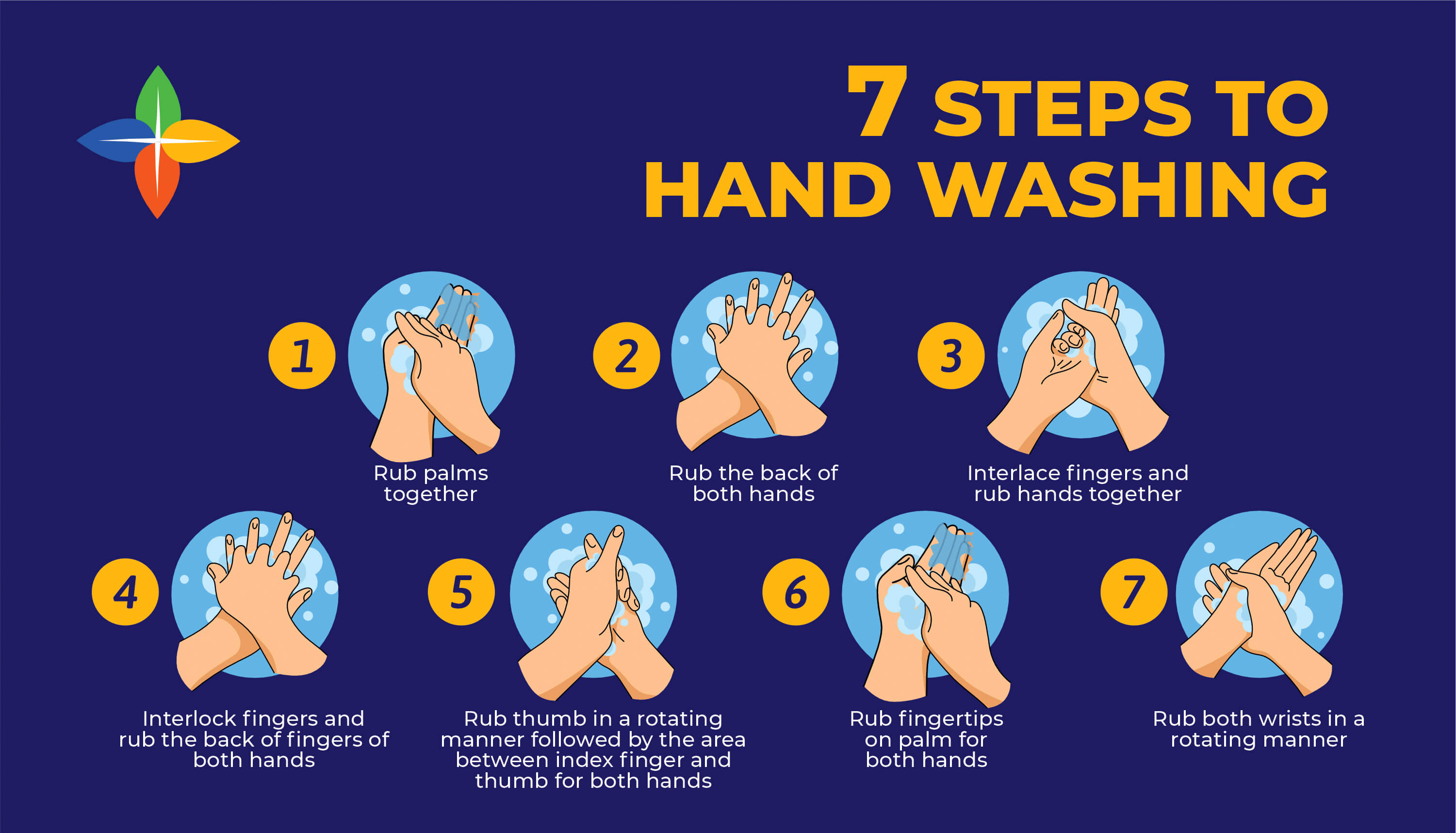
Hand Hygiene 5 Moments
The concept of "Hand Hygiene 5 Moments" is a fundamental framework used in healthcare settings to guide healthcare workers in performing hand hygiene at critical moments to prevent healthcare-associated infections. It was developed by the World Health Organization (WHO)(https://www.who.int/) as a structured approach to ensure the safety of both patients and healthcare workers. The Hand Hygiene 5 Moments are as follows:
- Before Patient Contact: The first moment is before any direct contact with a patient. This includes situations where healthcare workers may touch the patient, such as during a physical examination, administering medications, or adjusting medical devices. Cleaning hands at this moment helps prevent the transmission of germs from healthcare workers to the patient.
- Before Aseptic Task: The second moment occurs before any aseptic or sterile procedures, such as surgical interventions or invasive medical procedures. Hand hygiene is essential to maintain a sterile environment and reduce the risk of surgical site infections and other complications.
- After Body Fluid Exposure Risk: The third moment is after any potential exposure to bodily fluids, including blood, respiratory secretions, or other patient materials. Healthcare workers must clean their hands after handling contaminated materials, as these can contain infectious agents.
- After Patient Contact: The fourth moment occurs after direct patient contact. Healthcare workers should clean their hands to reduce the risk of transmitting germs from one patient to another. It also helps protect healthcare workers themselves from potential contamination.
- After Contact with Patient Surroundings: The fifth moment involves cleaning hands after contact with the patient's immediate environment. This includes touching surfaces or objects near the patient, like bedrails, bedside tables, or doorknobs. Cleaning hands at this moment prevents indirect transmission of pathogens to other patients and healthcare workers.
The Hand Hygiene 5 Moments framework is a comprehensive approach designed to minimize the risk of healthcare-associated infections and improve patient safety. By promoting benefits of proper hand washing at these critical moments, healthcare facilities can significantly reduce the spread of infections and protect the health of both patients and healthcare workers. This framework is essential to infection control practices in healthcare settings worldwide.
Clean Hands Are Within Reach
The theme for Global Handwashing Day 2023, "Clean hands are within reach," reinforces the idea that good hand hygiene is something we can all achieve. It doesn't require expensive equipment or specialized training; all it takes is a commitment to practicing it consistently. This year, let's celebrate by
- Spreading Awareness: Share the importance of handwashing with your family, friends, and community. Use social media, like Instagram, Facebook, or Twitter, to post about the significance of handwashing and its impact on health.
- Handwashing Demonstrations: Organize or participate in demonstrations at your workplace, school, or community centre. Teaching proper handwashing techniques can be fun and educational.
- Encouraging Good Habits: Make handwashing a habit, and encourage those around you to do the same. Remember the Hand Hygiene 5 Moments, especially in healthcare settings, where it can be a matter of life and death.
- Being a Role Model: Show your commitment to hand hygiene by practicing it yourself. People often follow the example set by those they respect and look up to.
In conclusion, on Global Handwashing Day 2023, remember that clean hands are genuinely within reach. By making handwashing a regular part of our daily routines, we can contribute to healthier lives, stronger communities, and a safer world. So, let's wash our hands; together, we can make a significant difference in global health. Happy Global Handwashing Day!
"Stay updated, stay connected. Follow us on social media for more information.”
Related Articles
Connect with Us
Health in a Snap,
Just One App.
Know more

